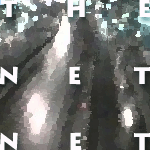Great Books traces a school-year in the life of a 48-year old film critic who,
inspired by the canon debates of the early 1990s, elected to return to Columbia to observe
the western culture and literature/humanities classes he first took as an undergraduate
decades before. Great Books, however, is not a great book. A cross between a
rambling monolog and lecture notes, Great Books is a commercial for Western Culture
as narrated by an actor who wishes to assure you of his deep and personal belief in its
value, and just as believable.
Perhaps a personal approach is needed here. Denby assigns special privilege to the
untutored response, even as he describes the professors putting students through their
paces so that their thoughts about the readings are organized and valuable. What is valued,
ultimately, is not so much the immediate reaction as the personal point of view,
although it is not clear that Denby understands this even as he reports it. And it is easy
to agree with one of the professors -- the content of the viewpoint is not as important and
whether the student realizes it is a viewpoint, is willing to
support it, and can, in fact, support it with the text that generated it. In this subtle
way, Denby does place some emphasis on a context-based approach to literature, an
approach substantially different from the universal-meanings and "right-answers" approach
enshrined by the classical "Defense of Canon" view.
Would that Denby took context a little further! While it is certainly true that the kinds
of books generally included on lists of "Great Books" are interesting to discuss -- our
culture evolved from, with, and around these works, after all -- Denby wants
to use them as Exhibit A in a case against the "Academic Left", an allegedly monolithic
group that appears to want to scrap Western Culture in favor of the Babel of
multiculturalism. Ultimately, Denby's call amounts to a plaintive cry that these "Great Books" really are a good read, darn it, neatly sidestepping just about every single
useful issue that has ever been taken with the institutional promotion of Western Culture.
Denby is especially, even painfully, clumsy when it comes to women. The subtitle of this
book makes sure to list Virginia Woolf as one of the indestructibles, but buried in the
book is a summary dismissal of Christine de Pizan as "not modern enough" for Denby, who
wanted to read writers much later than this 14th Century French intellectual. Apparently,
de Pizan's clear articulation of the problem of internalized sexism, combined with her
offering of retellings of traditional anti-feminist stories from the
point of view of the female characters demonized in them, was not modern enough for him.
Nor, evidently, was de Pizan's formal opening of a several-century intellectual thread
about women and literature, called the Querelle des Femmes by historians.
Christine de Pizan doesn't seem to hold a candle to Machiavelli in Denby's analysis. That
said, such a view certainly reflects some of the traditional aspects of Western Culture,
as do a couple of Denby's other memorable attempts to engage with women's issues.
He makes sure to attend a section taught by Ti-Grace Atkinson, a lesbian separatist,
whom he introduces thusly, "She was a tall and beautiful woman, stern, rather forbidding
even." A stunning demonstration of exactly the kind of attitude that provokes lesbian
separatists, to be sure, although I like to think of Atkinson howling with
laughter as she reads that sentence to her friends.
But Denby's comments are not always so benignly comical. Denby is eager to parade his
liberal qualifications. He is primly disapproving of this Academic Left that wants to burn
our books, or whatever -- admittedly this mythical creature is never very well
defined -- but he wants the reader to know that he is sophisticated about the world, he
realizes that women and people of color have had a bad deal in a lot of ways. And he goes
to a "Take Back the Night" group, where young women are talking about date rape, because,
essentially, he is sympathetic to these women -- who, for the most part,
just don't want to be vulnerable to rape. His sympathy does not prevent him from
criticizing them, however: "I could not understand why women should not take some
responsibility, some command and control over the many stages of the evening up to the point
of 'no'." So we are right back where women started: it's something of an improvement
over "she asked for it," but so much for taking back the night.
Interspersed among these personal interludes are descriptions of particular class sections
that report the discussions of particular works. Denby appears to be attempting some sort
of introspection in these sections as well, asking himself, for example, why he seems to
have such resentment against what he sees as the naivete and reticence of
the students in these classes. His conclusion seems to involve a dissatisfaction with his
own performance in such classes in his younger days, and perhaps it is tempered by an,
as-yet-unplumbed depth of dissatisfaction in his current abilities as well.
Great Books is occasionally amusing but largely painful and difficult, as well as
slightly diffuse in intent. The book is very concerned with contemporary and personal
events, although it does keep returning to the texts it purports to defend. However,
while not actually dishonest, the author's analyses are not especially interesting
either, ranging as they do from repetitions of standard interpretations to slight
variations, chosen seemingly for their "interest value" rather than their fidelity to
the texts involved. For sophisticated and experienced readers of literature, this book
promises a great deal more than it can ever hope to deliver, but then this book does not
appear to be aimed at sophisticated and experienced readers. Nor is it likely
to inspire any.



